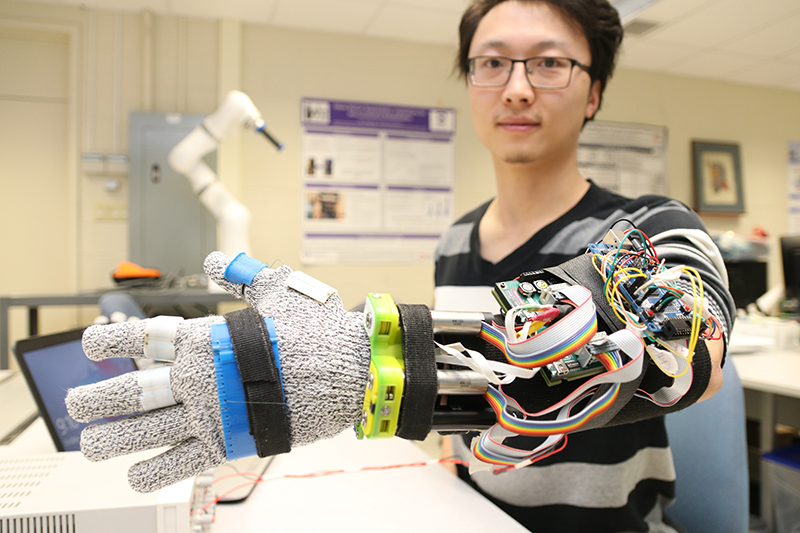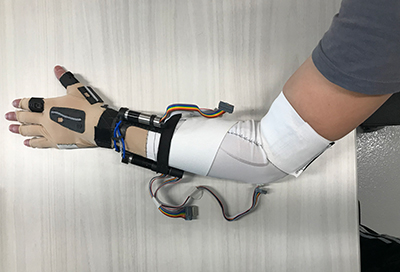
Your IMPACT
Imagine trying to type an email or cook dinner, but your arm is shaking so uncontrollably that you’re unable to accomplish these basic tasks.
Many patients with Parkinson’s disease — a progressive nervous system disorder that affects movement — have persistent shaking in their arm that makes everything from brushing their teeth to falling asleep difficult. But new hope exists in the form of brand-new wearable technology made possible through donor funding.
LHSC Neurologist Dr. Mary Jenkins, in collaboration with computer, mechanical and electrical engineering researchers at Western University, is developing a tremor suppression glove that could significantly improve patients’ quality of life.
This is the first glove of its kind to control the tremor of the entire arm, including the hands and fingers, in two ways:
1. Wires apply a mechanical force that stabilizes and suppresses the tremor
2. Electrical stimulation of the opposing muscles counteracts the tremor
Previous glove prototypes have used either one of these methods individually, but never combined. By using both methods, Jenkins and her team are able to minimize the amount of machinery required, allowing patients to perform day-to-day activities, tremor-free with minimal bulk.
This project is one of the ways Dr. Jenkins is working to help patients with Parkinson’s disease manage everyday life until a cure is found. With the help of donors, she’s able to take advantage of new technologies, web-based caregiver training and deep brain stimulation programs to help improve the lives of her patients.

The glove in its current, more advanced stage of development
“Some of my patients are working and very active,” Dr. Jenkins says. “Our goal with this research and with the glove is to manage patients’ symptoms enough so that they can lead comfortable and functional lives.”
The team is now refining the glove prototype and will focus their next phase of research on trialling the technology on participants who are excited by the possibility of an end to their tremors.
“Tremors are unrelenting,” said Ken, a patient and research partner of Dr. Jenkins. “Dr. Jenkins’ work on this glove gives me hope that a wearable solution will soon be available for myself and the rising number of people diagnosed with Parkinson’s disease each year.”
